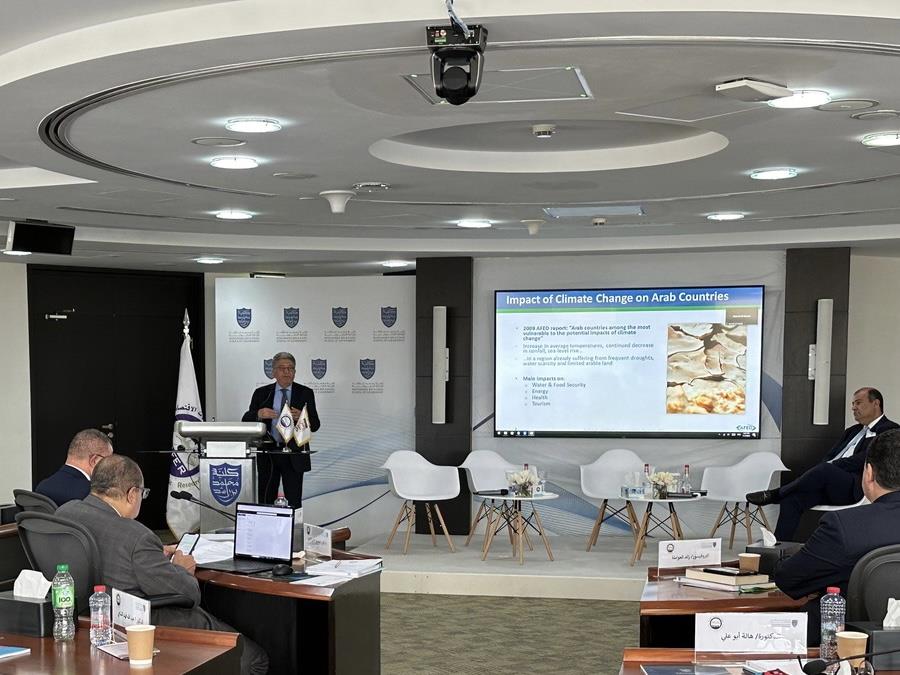7/11/2023

Dubai, 5/11/2023
The Mohammed bin Rashid School of Government in Dubai hosted the seventeenth scientific conference of the Arab Society for Economic Research (ASFER) under the title “Climate Change and its Implications on Arab Economic Development.” Among the conference participants were Dr. Mahmoud Mohieldin, ASFER Chairman and UN Climate Change High-Level Champion for Egypt for COP27 and United Nations Special Envoy on Financing the 2030 Sustainable Development Agenda since February 2020 as well as H.E. Razan Khalifa Al Mubarak, UN Climate Change High-Level Champion for COP28 and President of the International Union for Conservation of Nature (IUCN), in addition to a large number of Arab officials, academics, and researchers.
During 7 sessions, the conference discussed topics covering multiple areas, including water, energy and food, green economy, the impact on industry, global technological transformations and their role in adapting and mitigating the expected effects of climate change in the Arab region.
Najib Saab, Secretary General of the Arab Forum for Environment and Development (AFED), delivered a keynote speech in which he focused on the challenges of water and food security in light of climate change and the repercussions of wars and epidemics on the Arab environment, based on the results of AFED’s annual reports, especially the latest report on the Impact of Pandemic and War on Arab Environment. He identified the main lines of the solution under two groups: the first, stopping waste and enhancing efficiency, in food as well as in water, which includes rationalizing consumption and reusing wastewater after treatment, and switching to products that use lesser amounts of water and have a lower environmental impact, such as rice plantations and cow farming, which require large amounts of water and produce huge amounts of methane, one of the most powerful greenhouse gases causing climate change. Saab said that achieving this successfully may require a change in tastes and eating habits. The second fundamental challenge is activating practical mechanisms for Arab regional cooperation, based on benefiting from comparative advantages and differential opportunities, in a world governed by regional blocs. Saab stressed that the upcoming climate summit in Dubai constitutes an ideal opportunity to activate a unified Arab position in the negotiations.
While Dr. Mahmoud Mohieldin stressed the integration of climate action with other sustainable development goals, through following a comprehensive and integrated approach aimed at combating poverty, providing job opportunities, and making water and energy sources available to all, Al-Mubarak presented in detail the UAE’s preparations to host the upcoming climate summit in Dubai at the end of the month and ensure its chances of success.
During the conference, the seventh edition of the Arab Development Report was launched, entitled “Climate Change and Sustainable Development in Arab Countries,” which was prepared by the Arab Planning Institute in Kuwait, in cooperation with the National Planning Institute in Egypt, the Arab Society for Economic Research and the Organization of Arab Petroleum Exporting Countries (OAPEC). The report contained six chapters, dealing with climate change within the framework of agriculture, water, energy, green economy, environmental footprint, finance and governance. The authors adopted the fourteen annual reports published by the Arab Forum for Environment and Development (AFED) on the status of Arab environment as main references.
http://www.afedmag.com/english/NewsDetails.aspx?id=7196
